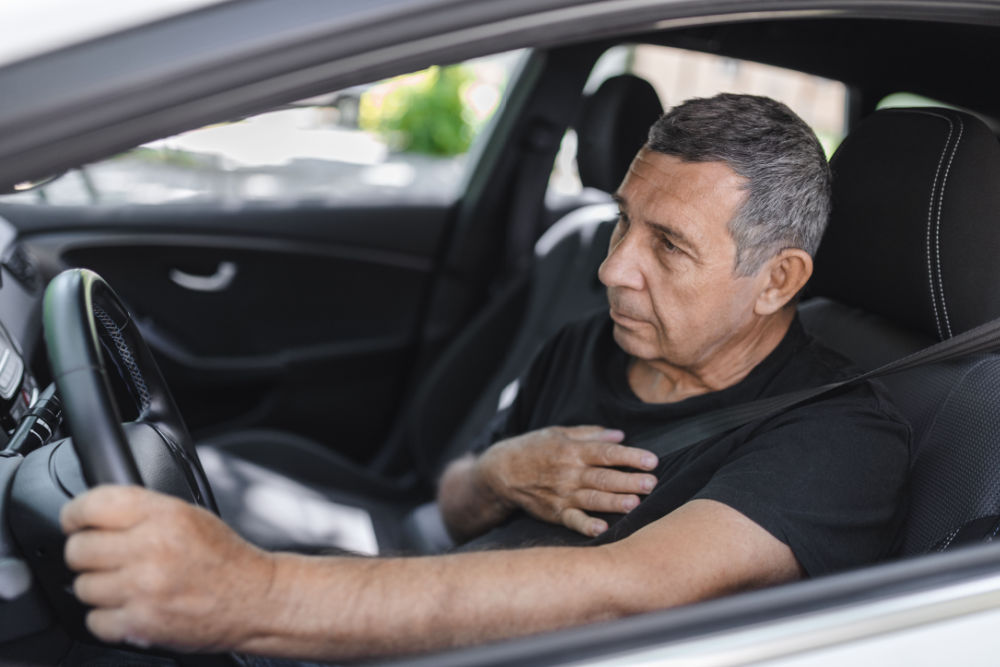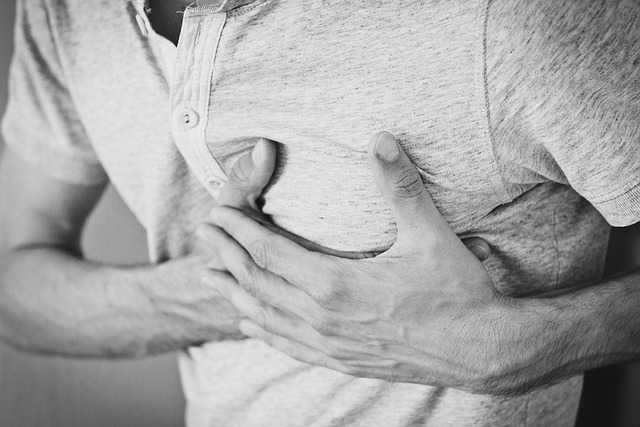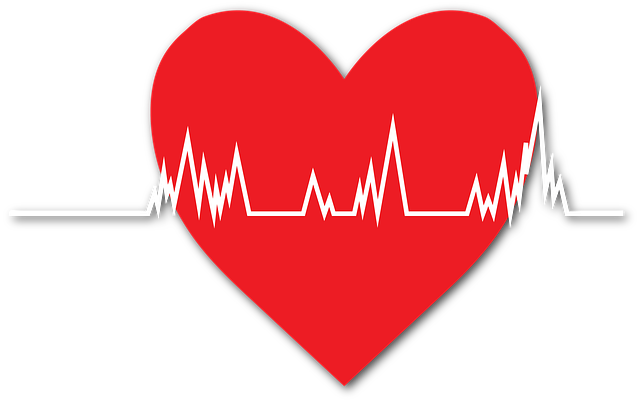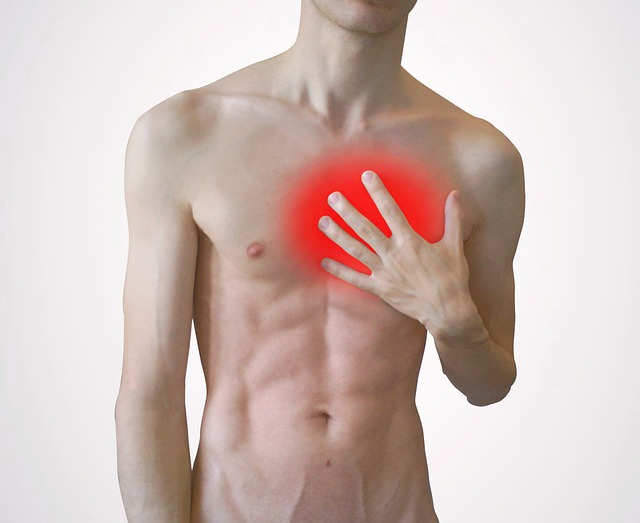Car accidents can be traumatic experiences that cause physical and emotional distress. Even minor collisions can result in severe injuries, that may manifest later on, including chest pain. Chest pain after a car accident can be a sign of serious health problems, and it's essential to understand the causes heart attack symptoms and seek treatment promptly. In this article, we will explore the causes of chest pain after a car accident and provide guidance on seeking immediate medical attention.

Understanding Chest Pain After a Car Accident
Chest pain is a common complaint after a car accident. It can be caused by a wide range of factors, from minor muscle strains to life-threatening internal injuries. Chest pain after car accident can also be a sign of whiplash-associated disorder (WAD), which occurs when the head and neck are whipped back and forth during a collision. In some cases, chest pain may not appear until several hours or days after an a car accident victim, making it critical to pay attention to any changes in your body's symptoms.

Causes of Chest Pain After a Car Accident
Whiplash-Associated Disorder (WAD)
Whiplash-associated disorder (WAD) is a common injury after a car accident, especially in rear-end collisions. It occurs when the neck upper body and head are violently jerked back and forth, causing muscle and ligament strains. WAD can also affect major blood vessels in the chest area, resulting in intense pain, and discomfort.
Fractured Ribs
Fractured or fractured sternum broken ribs are another common injury after a car accident, especially in side-impact collisions. The blunt force trauma and impact of the collision can have severe chest injuries cause the chest to compress, leading to fractures in the ribs. Fractured or broken rib or bruised ribs can cause severe pain when breathing, coughing, or moving.
Internal Organ Damage
Chest pain after a blunt force trauma or injury from a car accident can be a sign of internal organ damage, which is a serious medical condition that requires immediate attention. The blunt force trauma and impact of the collision can cause damage to the chest cavity and the heart, lungs, liver, or other vital internal organs within, resulting in chest pain, shortness of breath, and other symptoms.
Post-Traumatic Stress Disorder (PTSD)
Post-traumatic stress disorder (PTSD) is a mental health condition that can develop after a traumatic event, such as a car accident. It can cause physical symptoms, such as chest pain, as well as emotional symptoms, such as anxiety, depression, and flashbacks.

Other Injuries
Other chest injuries too, such as muscle strains, sprains rib fractures, and bruises, can have dull chest pain as injury symptoms and also cause chest pain after a car accident. These chest injuries may not be immediately apparent and may take several hours or days for chest pains to develop.
Signs and Symptoms of Chest Pain After a Car Accident
Chest pains are pain after a car accident and chest pains can present in various ways, depending on the underlying cause of the auto accident and chest injuries sustained. Some common signs and symptoms of a chest injury or pain after a car accident include:
Sharp or Stabbing Pain
Sharp or stabbing pain in the chest is a common symptom of internal injuries, such rib fractures, internal organ injuries such as a fractured rib or other rib injuries, broken bones and internal organ injuries or damage. This type of pain may worsen when you breathe deeply, cough, or move.
Pain with Movement
Pain in the chest that worsens with movement, such intense pain as when you lift your arms or twist your torso, may be a sign of muscle strains rib fractures or other soft tissue injuries.
Shortness of Breath
Shortness of breath or difficulty breathing can be a sign of internal injuries, such as lung damage, heart attack or blood clots or collapsed lung. It's essential to seek medical attention immediately if you experience this symptom.
Numbness or Tingling
Numbness sharp pain or tingling in the chest or arms can be a sign of nerve damage, which can occur after a car accident or heart attack.
Dizziness or Fainting
Dizziness or fainting can be a sign of internal bleeding or other serious medical conditions. If you experience these symptoms, seek medical attention immediately.

When to Seek Medical Attention for Chest Pain After a Car Accident
It's essential to seek medical attention immediately if you experience severe chest injury or, severe chest injury symptoms or pain after a car accident, or chest injury treated especially if you experience severe pain or any of the following symptoms:
- Shortness of breath
- Dizziness or fainting
- Numbness or tingling in the chest or arms
- Severe pain
- Pain that worsens with movement
- Pain that radiates to the arms, neck, jaw, or back
- Chest tightness or pressure
- Coughing up blood
If you're unsure whether your symptoms warrant immediate, medical professional intervention or attention, it's always better to err on the side of caution and not seek immediate medical intervention or seek medical treatment immediately with out medical professional help.
Diagnosing Chest Pain and a Chest Injury After a Car Accident
Diagnosing chest pain after a car accident typically involves a physical examination and diagnostic tests. Your doctor may order imaging tests, such as X-rays, CT scans, or MRIs, to check for internal injuries, fractures, or soft tissue damage. They may also perform blood tests to check for signs of internal bleeding or other medical conditions.
Treatment Options for Chest Pain and Chest Injuries After a Car Accident
The treatment options for serious chest injury and abdominal pain after a car accident depend on the underlying cause experience severe chest injury and pain. Some common treatment options include:
Medications
Pain medications, such as acetaminophen or ibuprofen, may be prescribed to alleviate pain and inflammation. In some cases, muscle relaxants or prescription pain medications may be necessary.
Physical Therapy
Physical therapy may be recommended to help alleviate pain and stiffness in the chest area. Your physical therapist may recommend exercises to strengthen the chest muscles and improve flexibility.
Surgery
Surgery may be necessary to a broken rib or bone or repair internal injuries, such chest injuries internal organ injury such as organ damage or fractured or a few broken ribs or bone or broken ribs elsewhere.
Psychological Counseling
If you're experiencing emotional symptoms, such as anxiety, depression, or PTSD, your doctor may recommend psychological counseling or therapy.
Preventing Chest Pain After Car Accident
Preventing chest pain after a car accident involves taking steps to reduce your risk of accidents and injuries. Some tips for preventing car accidents include:
- Always wear a seatbelt
- Avoid distracted driving, such as texting or using your phone while driving
- Obey traffic laws and signals
- Maintain your vehicle regularly to ensure it's in good working condition
- Avoid driving under the influence of drugs or alcohol
Should I Hire a Lawyer If I Have Chest Pains After a Car Accident?
Car accidents can be traumatic experiences that can result in physical and emotional distress. Even minor collisions can lead to injuries that may manifest later on, including chest pain. Chest pain after a car accident can be a sign of serious health problems, and it's essential to understand your legal rights and options if you've been injured.
Reasons to Hire a Lawyer After a Car Accident
There are several reasons why you may want to hire a lawyer after a car accident, including assessing damages, negotiating with insurance companies, filing a lawsuit, and providing legal representation.
Assessing Damages
A personal injury lawyer who can help you assess the damages you've suffered after a car accident, including your medical bills and expenses, lost wages, and pain and suffering. They can also help you determine the potential value of your case and ensure you receive fair compensation.
Negotiating with Insurance Companies
Insurance companies may offer lowball settlements or deny your claim altogether. A lawyer can negotiate with insurance companies on your behalf to ensure you receive the compensation you deserve.
Filing a Lawsuit
If negotiations with insurance companies are unsuccessful, a lawyer can file a lawsuit on your behalf. They can also represent you in court and ensure your legal rights are protected.
Providing Legal Representation
A lawyer can provide legal representation throughout the entire process, from negotiating with insurance companies to representing you in court. They can also provide guidance and support and answer any legal questions you may have.
Finding the Right Lawyer for Your Case
Finding the right lawyer for your case is essential. Look for a lawyer with experience handling car accident cases and a track record of success. You should also feel comfortable communicating with your lawyer and confident in their ability to represent you.
Conclusion
Chest pain after a car accident can be a sign of much more serious injury, or medical conditions, and it's essential to seek medical care and attention promptly. Understanding the causes and symptoms of chest pain after a car accident can help you identify potential serious injuries, and seek appropriate medical treatment now. With the right diagnosis and treatment, you can recover from your injuries and get back to your daily activities.
It's also essential to take steps to prevent car accidents and reduce your risk of injury. By following safe driving practices and maintaining your vehicle, you can help other car accident victims keep yourself and others safe on the road.
If you've been in a car accident and are experiencing chest pain or other symptoms, it's essential to seek medical care and attention immediately. Don't delay seeking treatment, as early medical intervention can improve your outcome and reduce your risk of complications.
Remember that every car accident is different, and the injuries you sustain from minor chest injury may vary depending on personal injury claim the circumstances of the collision. By understanding the causes and symptoms of a chest injury and pain after a car accident, you can take steps to protect your health and seek appropriate medical treatment if necessary.
FAQs
What should I do if I experience chest pain after a car accident?
If you experience chest pain after a car accident, seek medical attention immediately. Don't delay seeking treatment, as early intervention can improve your outcome and reduce your risk of complications.
What are the most common causes of chest pain after a car accident?
The most common causes of chest pain after a car accident include whiplash-associated disorder, fractured ribs or broken ribs and, other, internal organs, organ injury or damage, post-traumatic stress disorder, and other injuries.
How is chest pain after a car accident diagnosed?
Chest pain after a car accident is a serious injury typically diagnosed through a physical examination and diagnostic tests, such as X-rays, CT scans, or MRIs.
What are the treatment options for chest pain after a car accident?
The treatment options for chest pain after a car accident depend on the underlying cause of feel chest pain immediately after injury, and may include medications, physical therapy, surgery, or psychological counseling.
How can I prevent chest pain after a car accident?
You can reduce your risk of chest pain after a car accident by following safe driving practices, wearing a seatbelt, avoiding distracted driving, and maintaining your vehicle regularly.


